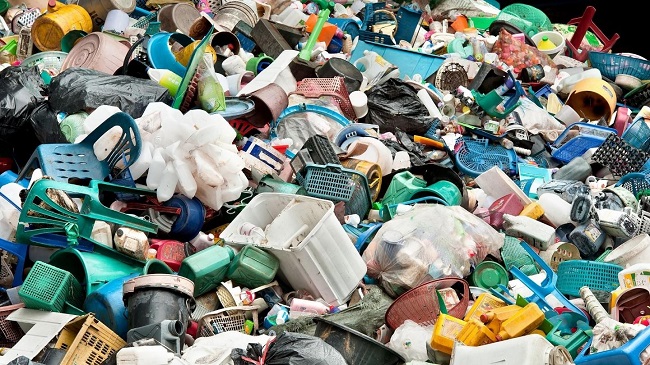The final strand of the Afri-Plastics Challenge, called Promoting Change and delivered by London-based Nesta Challenges, began accepting applications on Wednesday, December 8, 2021. This marks the last leg of the Challenge after Strand 1: Accelerating Growth and Strand 2: Creating Solutions were launched in July and October 2021.

Successful applicants for Strand 3 will use innovative engagement strategies such as gamification, incentives and storytelling to promote behaviour change and educate communities, as well as provide insights into the roles that women and girls play across the value chain.
With the growing risks of inadequate plastic waste management, innovators, startups and established companies in sub-Saharan Africa have an opportunity to showcase inclusive ideas to respond to plastic waste management issues through seeking gaps in the innovation landscape that can make a positive difference in both the environment and communities.
Constance Agyeman, Director of International Development, Nesta Challenges, said: “Plastic pollution is a terrible and ever-growing threat to the environment and health of sub-Saharan African communities. Sustainable consumer choices will make the difference between disaster and success in taking on the millions of tonnes of plastic being dumped, buried and burnt each year across the continent.
“Not only do we need innovation to minimise the quantity of plastic being produced and to better manage plastic waste after it is used, but key to the long-term success of tackling plastic pollution will be people and the choices they make – creative communications that shift behaviour and attitudes around plastic use are essential.”
Studies have shown that individual behaviors can have measurable and significant environmental impacts and individuals or organisations that build effective programmes that increase the level of environmentally responsible behaviors, such as plastic waste recycling, form an important part of creating positive environmental change.
Tactics like altering the size and shape of the openings of containers for things like plastic bottles, and cans can influence recycling behaviors. In one study, distributing flyers urging shoppers to purchase returnable bottles resulted in a 15% increase of returnable bottle purchases.
It is through this third strand, Promoting Change, that the Afri-Plastics Challenge hopes to inspire this change. By the end of the challenge, the best solutions will have generated evidence of change in one or more behaviours such as reduced littering, segregation of plastic waste before the recycling process and favouring reusable plastics over single-use plastics.
Joshua Amponsem, Founder of the Green Africa Youth Organisation:“With governments across sub-Saharan Africa urging communities to come together on issues of conservation and sustainability, one of the key actions is to eliminate all single-use plastics from their countries’ operations, products and supply chain and the first step in doing so is by changing our approach towards consumer packaging and our behaviour around plastic waste. The Afri-Plastics Challenge’s third strand, Promoting Change, hopes to do this by finding the most creative and innovative strategies for promoting this shift in behaviour.”
Thirty semi-finalists for Strand 3 of the Afri-Plastics Challenge will receive capacity-building support to further develop their engagement strategies, alongside a grant of £5,000 each. Fifteen finalists will then be selected in June 2022 to implement their ideas and each win £50 000.
Finally, three winners in March 2023 will receive a combined total prize of £750 000.
